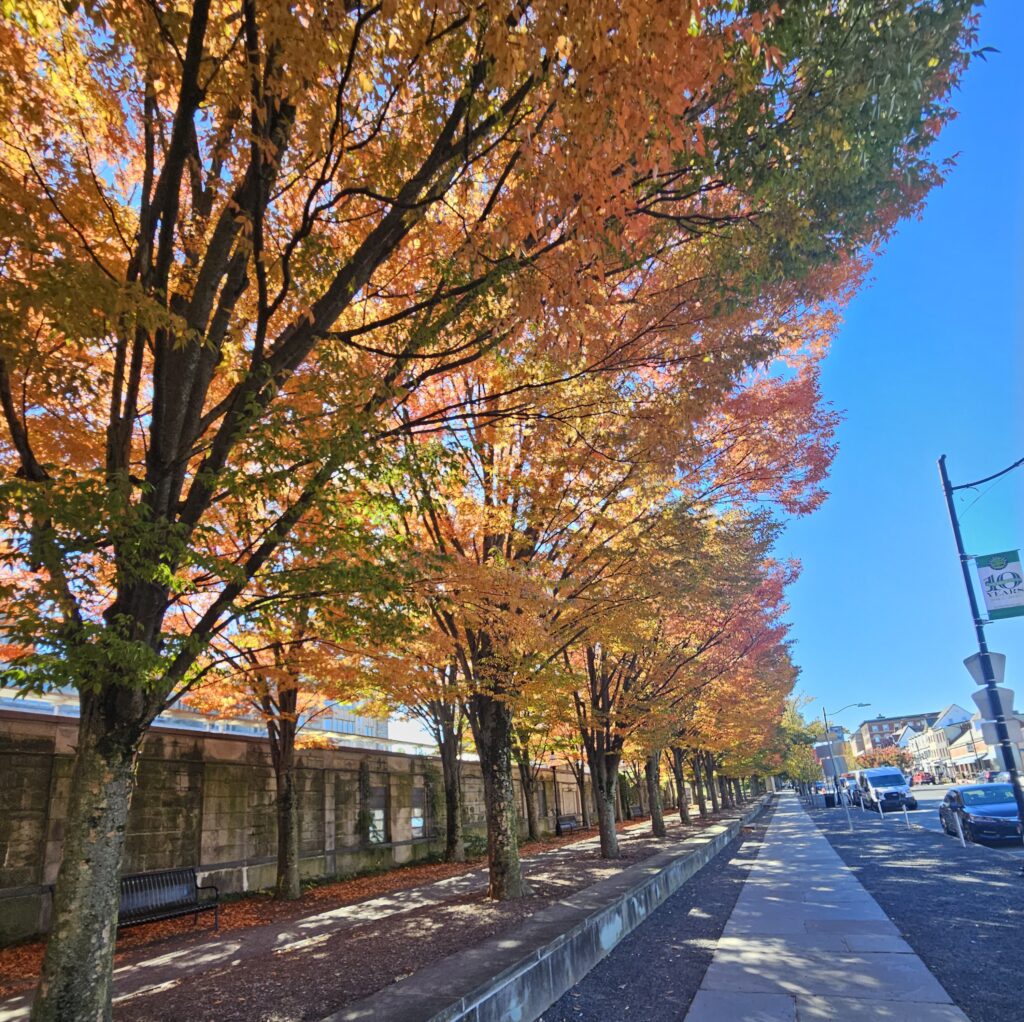Princeton moves fast. The semester is short, the classes are dense, and before you know it, you’re taking midterms and turning in papers for your writing sem. At least, that was my experience as a first year. Even now as a sophomore, it can feel hard trying to keep up with the pace of the orange bubble. Balancing the demands of coursework alongside the demands of work for research teams and professional clubs can limit how productive I feel at any given moment. Those moments, when I feel I’ve done all the readings I can do and written everything I can think about, are so challenging because it feels like I’ve hit an academic wall. That’s when I find ways to shake things up with a study break. For me, that looks like taking a walk. I know it sounds cliche, but taking a walk can be one of the best solutions because it’s so simple.
I want to clarify here that I understand that most of us spend a good chunk of our day going from one place to another. The difference is that here the walk becomes its own end rather than simply being a means to another separate end. This intentionality brings advantages that make going for a walk uniquely useful. This can be different from scrolling through social media only to realize you’ve lost time you couldn’t afford to lose. Instead, these advantages are fulfilling in ways that validate the use of our limited available free time.
For one, taking a walk (whatever that looks like for you) can let you physically remove yourself from your work without forcing you to divorce yourself from your focus. This means that you can take a moment to stop trying to solve that tricky problem or force a new connection without necessarily forgetting about the topic at hand. I experienced this recently over the summer when I was putting together a literature review for my research team. I had been staring at my laptop for hours, highlighting and summarizing and cross referencing, trying to paint a clear picture of demographic specific public health recruitment practices in the South. Eventually, I realized I was leading myself in circles, only asking variations on the same few questions. So, I went for a short walk. Once I stopped trying to force myself to make connections and gave myself a little more room to wander, I was able to ask those new generative questions. These enabled me to make the important connections that I was stuck in between.
Additionally, going for a walk also provides the tandem benefit of creating a moment for actually engaging with our remarkable campus. Each and every building provides rich points of reflection for sparking interesting lines of thought. Just as compelling are the interactions with nature. Even though running into the campus fox might not directly push forward your thinking, it will definitely give you a chance to recenter. Perhaps the most critical encounters though, are the ones we have with each other. Those chance opportunities to check in, catch up, and come together are perhaps the most priceless rewards of an intentional walk. Those moments are when I find myself most empowered to reach for new solutions and most inspired to persevere.
This is right around the time of year when all of the causes of burnout begin to rear their heads. Whether it’s overloading with a packed schedule or grappling with time management, it’s easy to unknowingly walk down the path to burnout. Taking a break by going on a walk can be a crucial step off that path, but it’s not the only step. Utilizing the McGraw Center and the Writing Center as the critical resources they are can be incredibly beneficial. Finding support with the Office of Undergraduate Research and career advisors can similarly be just as impactful. In any case, walking away from burnout starts by taking time for yourself in a way that is both restorative and formative. This looks different for everyone. For me that’s going on a walk, for someone else it could be something totally different. Take some time to find what works best for you, because I promise you it will save you time in the long run.
— Stanley Stoutamire Jr., Social Sciences Correspondent


